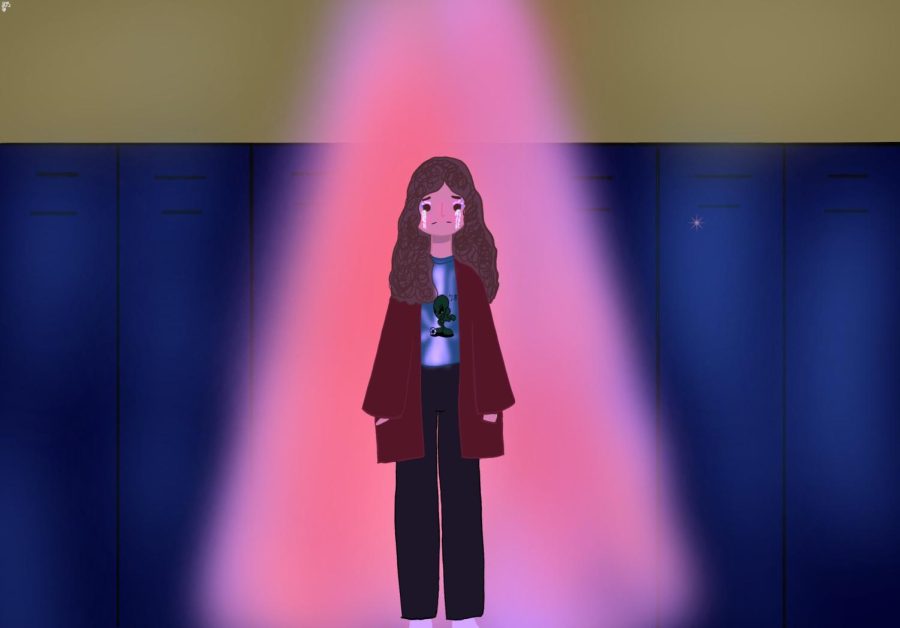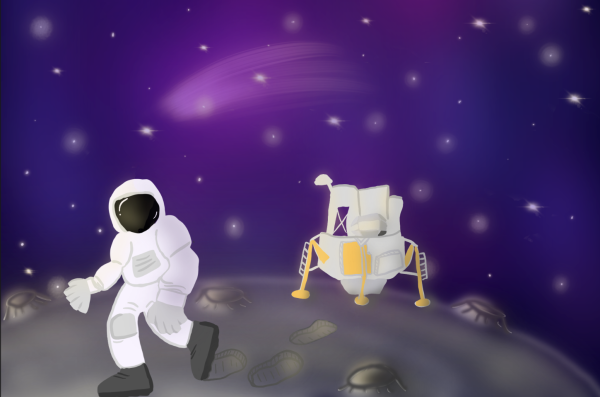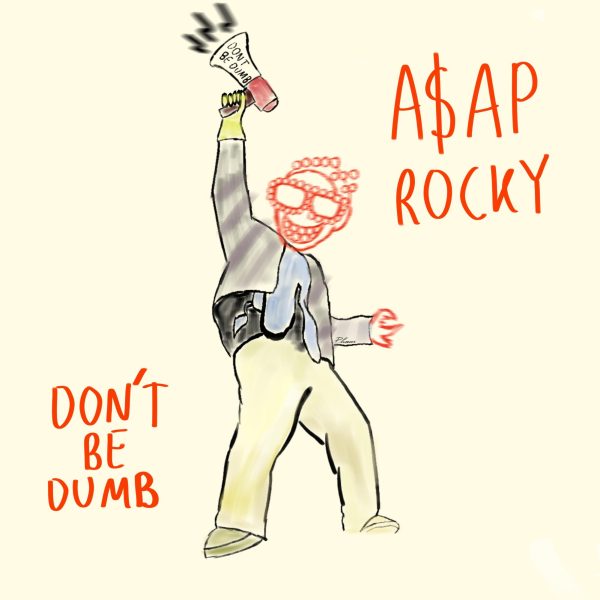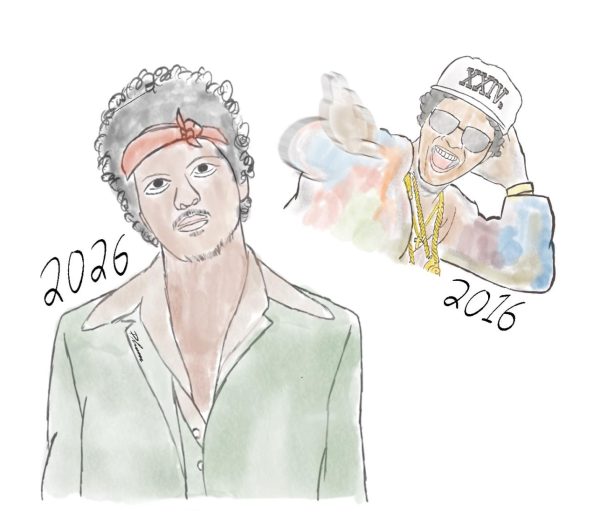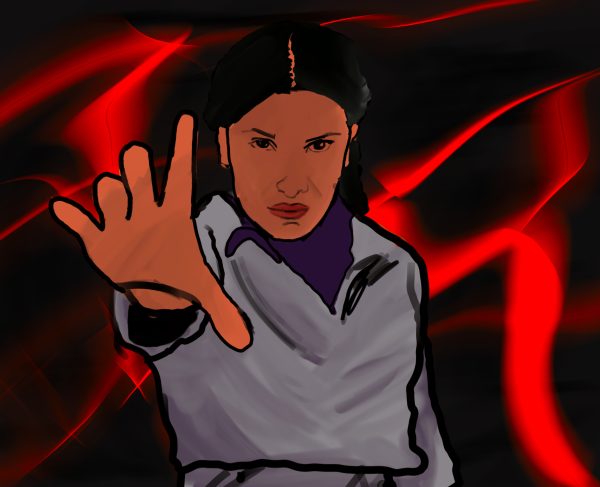Shows fail to capture reality of ‘generation’ of teenagers
As a newly-minted second semester senior, I have predictably begun the usual reflection over my experiences of the last four years. Even though my high school experience has been thoroughly singular and unpredictable, a part of me still feels unjustifiably underwhelmed by my own memories.
From a young age, popular media has fed me an incredibly idealistic and stylized depiction of what a true “high school experience” entails. But for me, and many others, those plot lines were always closer to fantasy than realism. Despite living through a tumultuous and unprecedented period of history, it is easy to compare our lives to the media and consequently feel mundane in comparison. While there are some notable exceptions, the majority of popular television shows and movies centered around teenagers get some key elements of the high school experience painfully wrong.
In 2019, the hit series, “Euphoria,” premiered to an eager audience and has since become a cultural staple. The show hooked audiences with its promise to not shy away from difficult topics, as noted showrunner Sam Levinson. Due to the series’ home on HBO, it has an extensive budget for impressive production value and an A-list cast of actors. However, the show simultaneously faces criticism for its alleged glamorization of addiction and mental health issues, as well as its overt sexualization of its teenage characters. The protagonist, Rue, is a 16-year-old opiate addict, battling the struggles of life after rehabilitation, and the plot explores other mature topics such as sexual assault, violent relationships, hazing and drug dealing. The show’s dark themes are juxtaposed with colorful cinematography and artistic montages, which makes it easier to forget that these incredibly graphic scenes are supposedly involving teenagers. Euphoria takes the “teenage experience” to the extreme, and while undeniably entertaining, is not relatable for the majority of high schoolers.
According to research from the University of Michigan, the rates of teen drug and alcohol use have been decreasing annually. For example, about 47 percent of twelfth graders reported alcohol use in 2021, compared to about 55 percent in 2020. While drugs and alcohol obviously still remain present in the lives of high schoolers, the extent to which “party culture” exists is on a smaller scale than we see onscreen. What “Euphoria” gets right in its portrayal of teenagers is the universal turbulence of emotions and how the intensity and overwhelming nature of life allows experiencing them to feel surreal, or even euphoric.
Media also has a tendency to broadly categorize every student into a clique. From “Glee” to “Mean Girls,” teenagers are labeled by one characteristic which defines how they are treated within the confines of the school. In reality, students are not nearly as divided, and while distinct groups definitely exist, students are not so easily defined. It is entirely possible to be a varsity athlete who simultaneously performs in the musical and makes the honor roll–in fact, it’s actually pretty common, especially at smaller schools like St. Viator.
Possibly the key issue, though, in the media’s misrepresentation, is its fixation on portraying teenagers as adults. In 2019’s film adaptation of the Tony-winning musical “Dear Evan Hansen,” the 16-year-old protagonist is played by a 27-year-old Ben Platt, whose empty and unconvincing portrayal left the show’s uplifting message unreceived by audiences. Almost universally, teenagers in the media are unsettlingly portrayed by actors decades older than their characters. This creates not only unachievable beauty standards for children, who consequently compare themselves with dismay to fully-developed adults, but also the ability of showrunners to justify depicting graphic and unrealistic situations on screen in the name of drama.
Despite the oversaturation of media that overgeneralizes, unfairly criticizes and misrepresents teenage life, some recent productions have captured the modern adolescent experience fairly accurately. Films like “Lady Bird” and “Booksmart” cleverly and impressively develop thoughtful protagonists, who, in another story, might have been relegated to a role in the background. “The Fallout,” starring Jenna Ortega and Maddie Ziegler depicts the aftermath and trauma of a school shooting on its students and is a chillingly realistic portrayal of both the “Gen Z” psyche and the truths of modern life. As far as television goes, Netflix’s “Everything Sucks!”, “I Am Not Okay With This” and “American Vandal” present the seemingly prosaic teenage realities with care, and HBO Max’s “Generation” thoroughly explores the complexities of growing up in the twenty-first century.
By the standards of all the movies I loved as a child, I failed as a teenager. I never had a transformative makeover or made a group of unexpected and eclectic friends like Ally Sheedy in “The Breakfast Club”; Jake Ryan never plucked me from social obscurity and whisked me away in a red convertible as he did in “Sixteen Candles”; and I never gave a helplessly urgent speech pleading everyone at the homecoming dance to give peace a try, a la any teenage romantic comedy set in the early 2000s. But now, I realize that I set unachievable expectations for myself. High school is messy, awkward and disappointing more times than we would care to admit. Being a teenager has no single archetypal narrative, and the experience varies for everyone. However, for all of us, it is a period of sudden and significant change, where each person is trying to navigate a new and unfamiliar world and ultimately discover the person they want to become.
Your donation will support the student journalists of Saint Viator High School. Your contribution will allow us to purchase equipment and cover our annual website hosting costs.



